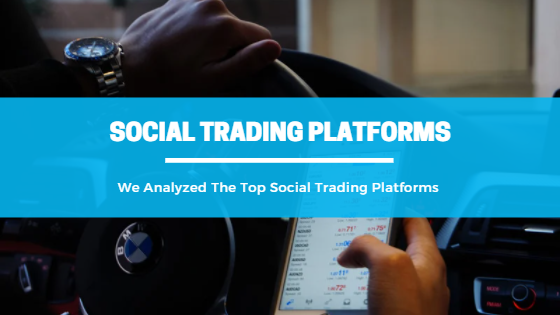In this article, we’ll look at some of the best social trading platforms available in 2023, as well as other important features you should consider before committing to anything. If you are a beginner and want to learn about liquidity providers and what they do, we have an in-depth guide for you here.
Top Rated Social Trading Platforms 2023
We put together this list of the best social trading brokers based on various factors. Security, account types, minimum deposits, regulation, customer support, ease of use, and more were considered. Here is our selection of the best brokers for social trading.
- eToro – Best Social Trading Platform Overall
- AvaTrade – Best Social Trading App Overall
- ZuluTrade – Best Third-Party Social Trading App
- Darwinex
- DupliTrade
- Collective 2
- Tradency Mirror Trader
- FXTM
- Naga
- Ayondo
- Tradeo
- Kinfo
- InstaForex ForexCopy
- MyFXbook
- CopyFX
- MyDigiTrade
- MQL5
- IronFX Social Trader
- LiteForex Social Trading
- FX Junction
- MetaQuotes MetaTrader
- FXstat
- CM Trading CopyKat
- cMirror
- SIRIX
- PrimeXBT
- Coinmatics
eToro
eToro was designed with social trading in mind. They are set up similarly to many social media platforms, where users can select certain feeds that they want to view. This creates a community of traders who can share tips and advice.
It is set up clearly, and the dashboard is easy to use. Information is presented clearly, and setting up trades is simple.
eToro has a copy trading feature where users can copy certain traders, and the platform will copy the trade with a similar proportion of your portfolio.

| PROS | CONS |
|---|---|
| Large variety of stocks, including cryptocurrency. | Users have reported that customer service can be unresponsive |
| Built-in copy trading | Higher fees than some other trading platforms |
| Generates in-depth reports |
CFDs are complex instruments and come with a high risk of losing money rapidly due to leverage. 81% of retail investor accounts lose money when trading CFDs with this provider. You should consider whether you understand how CFDs work and whether you can afford to take the high risk of losing your money.
AvaTrade
AvaTrade started in Dublin, Ireland in 2006. Over the last 14 years, they have built a proven record of trust and security.
The desktop browser trading platform is a bit clunky. Users can choose between standard, simplified, and custom UIs. These UIs are a bit clunky. There doesn’t seem to be much order or reason for the way the information is organized.
This can chase away newer traders who aren’t used to sifting through heaps of information and graphs. Their mobile app is more concisely ordered and user-friendly.
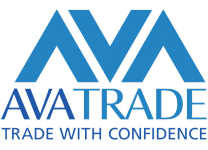
| PROS | CONS |
|---|---|
| Regulated all over the world, so there’s no question of legality | Demo-account limited to 21-days |
| Competitive commission and fee pricing structure | High fees for inactive traders |
| Supports a wide range of markets |
ZuluTrade
ZuluTrade is a stripped-down signal service. Users can subscribe to 100,000 signal providers to get a broad range of market indicators. The platform will automatically replicate trades from chosen traders.
This is beneficial for copying traders as it limits the amount of experience needed to make profitable trades. For the traders who are copied, they are given a commission for staying routinely profitable.
ZuluTrade earns a commission on each trade from its relationship with brokers. They are fully regulated in the EU and Japan.
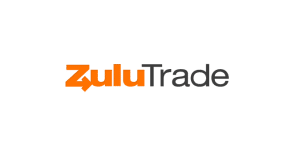
| PROS | CONS |
|---|---|
| Allows reverse trading so you can bet against other trades | Options are limited to Forex and cryptocurrency |
| Automatic copy-trading minimizes time investment | |
| Provides performance data for each trader | |
| Demo account available |
Darwinex
Darwinex is an open trader exchange that offers social trading features as well as brokerage accounts. It is regulated by the FCA in the United Kingdom. They offer Forex, stocks, indices, and cryptocurrency.
Unlike other brokers, you do not directly copy a single trader. Instead, Darwinex has proprietary technology that aggregates profitability from trades all across the globe. The platform directs traders to the best general strategy.
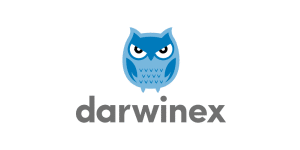
| PROS | CONS |
|---|---|
| Low fees and commissions | High entry fee |
| A clever pseudo-copy trading algorithm gives traders a competitive edge | Leverage maximum limits are set quite low |
| Varied investment options |
DupliTrade
DupliTrade is an online trading service that links traders with strategy providers across 12 approved brokers. They are partnered with other industry leaders such as AvaTrade and Pepperstone.
Currently, there is no mobile app and all trading is done in browsers.
Their website has analysis for all providers covering weeks traded, win percentage, follower count, and more. It’s useful data for anyone aiming to copy the most profitable strategies.
The platform also has a simulated trader, allowing users to test out copies without assuming any risk.
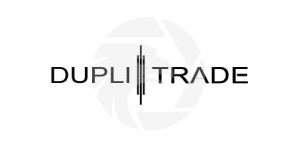
| PROS | CONS |
|---|---|
| No monthly fees | High initial deposit to open an account |
| Lots of useful information on providers | Majority of traders on the platform only trade Forex |
| Proportional trading lets users emulate a percentage of copied trades |
Collective 2
Collective 2 (often called C2) is an easy-to-use platform that has been around since 2001. Like all brokers, it gives users the option to copy certain traders and strategies that appeal to them.
The trading can be automated for a fee. Members of the platform get access to other traders’ history. The platform allows users to buy or sell manually or automatically, which gives traders a large degree of flexibility.
As well as following strategies from other traders, C2 has a variety of other trading strategies you can choose from on their site.
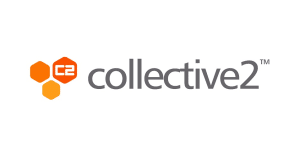
| PROS | CONS |
|---|---|
| Intuitive design communicates information in an easy-to-digest manner | Monthly subscription fees can start to cut into your profits |
| Proven track record and trustworthy history | Users must follow a strategy for 30 days before you can review it |
| Auto-trades are highly customizable |
FBS CopyTrade
FBS CopyTrade is an online broker that deals with Forex trading. It facilitates copy and mirror by providing performance analysis for each trader’s profile.
If you’re confident enough to trade independently, they have a reward system where traders earn a commission allowing other traders to copy them.
They have mobile apps for Android and iOS as well as a desktop browser.

| PROS | CONS |
|---|---|
| Great customer service | A limited number of tradable assets |
| Easy to start and stop copy trading at any time | Not available in the US |
| Client funds are not segregated |
Tradency Mirror Trader
Tradency Mirror Trading allows users to copy the trading strategies of experienced traders around the world. It launched in 2005 and is considered one of the pioneers of social trading.
Because they are not a broker, Tradency will not charge you any fees or commissions, but the brokers that they connect to still take their cut. This means that the fees charged on each trade can be variable.
You can use a variety of filters to find a trading strategy that works for you. The platform provides information on a trader’s activity, both past, and current trades.
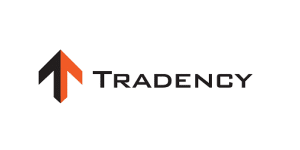
| PROS | CONS |
|---|---|
| Great customer service | A limited number of tradable assets |
| Easy to start and stop copy trading at any time | Not available in the US |
| Client funds are not segregated |
FXTM
FXTM, or ForexTime, was founded in 2011. It’s a global trader that deals in CFDs, Forex, and Crypto trading.
Their platform has a list of great educational tools for anyone looking to learn more about investments and trading. It’s a must if you’re starting.
Trading in CFDs can be tempting, it’s a high-risk, high-reward commodity. But buyers beware: almost 80% of CFD traders on this platform lose money on their trades.
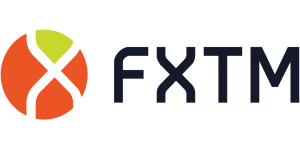
| PROS | CONS |
|---|---|
| A wide array of educational tools | High withdrawal and inactivity fees |
| Accounts are easy to open | High CFD commission fees |
| Demo accounts available |
Naga
Naga Markets is a relatively new platform based in Germany. They are regulated by CySEC and have a cross-border CySEC license, so you know everything is above board.
Naga holds all funds in segregated bank accounts which protects your funds should the company fold.
The service is ideal for novice or small-time traders as there is no minimum deposit amount to open an account. However, there are rewards in place for depositing more into your account such as lower CFD commissions and access to educational webinars.
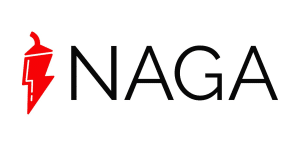
| PROS | CONS |
|---|---|
| Tools and webinars available in a variety of languages | Leverage offerings up to 1000:1 lets traders assume huge risk |
| Low minimum investment amount is great for first-timers | Educational tools only cover the basics. More advanced traders might outgrow the platform |
| Interact and chat with traders across the globe |
Ayondo
Ayondo has thousands of active traders on their platform, many of them with years of experience. This is useful to anyone looking to start copy trading as a wide user-base gives you more traders to potentially copy.
The minimum deposit to get started is next to nothing, so the barrier for entry is low.
Their offices are based in the UK and are regulated by the Financial Conduct Authority (FCA).
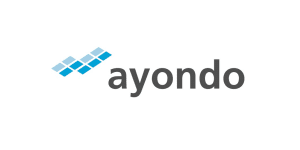
| PROS | CONS |
|---|---|
| Negative balance protection prevents massive losses | Do not offer many educational tools |
| Free demo account | |
| Wide range of markets to choose from |
Tradeo
Tradeo is a CFD and Forex broker listed in the EU and regulated by CySEC.
They do not charge any commission on trades. Instead, they make their money through mark-ups on the spread.
They offer five different types of accounts depending on the deposit amount, starting at $250. Depending on your account type, you will have access to different leverage ratios and bonus percentages.
It’s also possible to switch your account to Islamic-friendly accounts on request.
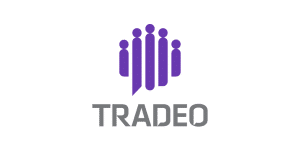
| PROS | CONS |
|---|---|
| Selection of unique trade calculators | Some educational tools only available to larger accounts |
| Open an account in 5 minutes | High withdrawal fees |
| Trade commodities as well as CFDs and Forex |
Kinfo
Kinfo focuses on long-term investments. Unlike the rest of the platforms in this list, you cannot trade directly on Kinfo.
Users get a profile like any other social media platform where they can enter a bio and location, as well as communicate with other traders. The platform focuses primarily on data and analysis.
To trade with Kinfo, you need to connect your page with a third-party broker. They support a variety of brokers, including Ally Invest and E*TRADE.
Kinfo is unique in that it allows users to analyze hedge fund results and inside trading activity. This is useful for more experienced traders who can use them as early indicators of market sentiments.

| PROS | CONS |
|---|---|
| Access to otherwise hidden information and trades | Some information available is only useful to long-time traders |
| Social aspect encourages swapping tips and tricks with other traders | You cannot complete trades on the platform |
| Kinfo is completely free |
InstaForex ForexCopy
InstaForex is a Russian-based company that is registered with CySEC. They were one of the first brokers to allows users to trade Crypto such as BitCoin and Etherium.
Client funds are kept segregated so you can be sure your funds are safe should the company face financial instability.
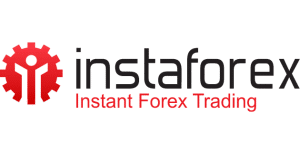
| PROS | CONS |
|---|---|
| InstaForex often has competitions with prizes up to $500,000 | Low leverage margins |
| Variety of trading accounts for both beginners and experts | Not available in the US |
| No minimum deposit |
Myfxbook
Myfxbook is a community trading portal that provides many other services in addition to social trading. The AutoTrade feature is the system they use to facilitate copy trading.
They have a staggering amount of data and analysis tools that are useful to all traders, not just copy traders.
There are over a million traders using their platform, so you can be sure to find a strategy that suits you.
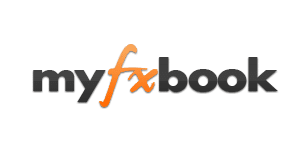
| PROS | CONS |
|---|---|
| Trade data is available to download | Commissions and fees are not transparent |
| System allows proportional copy trading | Some users have reported high instances of slippage |
CopyFX
CopyFX was released by Forex broker RoboForex. This means that CopyFX is not independent, it must be used in conjunction with RoboForex brokerage services.
Although working with a single broker limits trading options, it limits the chance of slippage, the difference between where a computer entered a trade and where the transaction was completed.
In short, this means more accurate reporting on your trades and faster market feedback.
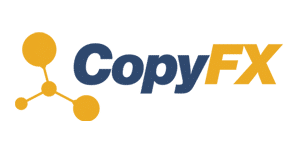
| PROS | CONS |
|---|---|
| Trade data is available to download | Commissions and fees are not transparent |
| System allows proportional copy trading | Some users have reported high instances of slippage |
IronFX Social Trader
IronFX is an online multi-asset broker that offers a wide variety of trade options. Users can trade Crypto, Forex, indices, futures, and more. Of all the platforms on this list, IronFX offers one of the broadest ranges of options.
Users should be wary of their flexible leverage that goes up to 1000:1. This means traders could earn huge, or incur massive losses.
They provide multilingual support in over 30 languages.
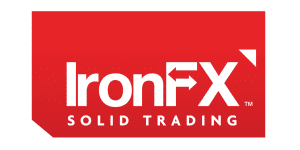
| PROS | CONS |
|---|---|
| Low commission fees | Do not offer volume discounts |
| Reputable brand known for strong security | Limited news and research tools |
| Wide range of tradable instruments |
LiteForex Social Trading
IronFX is an online multi-asset broker that offers a wide variety of trade options. Users can trade Crypto, Forex, indices, futures, and more. Of all the platforms on this list, IronFX offers one of the broadest ranges of options.
Users should be wary of their flexible leverage that goes up to 1000:1. This means traders could earn huge, or incur massive losses.
They provide multilingual support in over 30 languages.

| PROS | CONS |
|---|---|
| Runs on both MT4 and MT5 platforms | Not available in the US, Japan, or Israel |
| Expert market analysis available to users | Commission fees are not competitive with other brokers |
| Client support available in multiple languages |
FX Junction
FX Junction is owned by PineByte and claims to be the largest platform for social trading in the world. Although we doubt this account, it is reliable for traders.
Uniquely, they advertise that they have no conflict of interest with any other brokerages, a useful consideration if you’ve followed the recent RobinHood debacle.
Users copy signals from top-performing traders they wish to mimic. Considering FX Junction has a massive user base, there are lots of strategies to choose from.
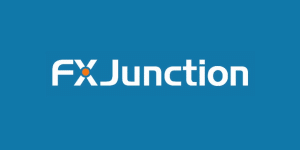
| PROS | CONS |
|---|---|
| No conflict of interest means no counter trading from the platform | Most accounts on the platform do not have impressive returns |
| Low commission fees | Very few user reviews |
| Large user-base |
FxStat
FxStat was launched in 2011 in London and has since expanded with offices in Jordan, Saudi Arabia, and Russia.
They have shifted their initial business focus from market analytics to facilitating auto trading and social trading.
Trader data can be broken down and filtered into many useful headings such as Drawback percentage, profit percentage, and more. This is useful for any trader looking to copy a specific trading strategy.
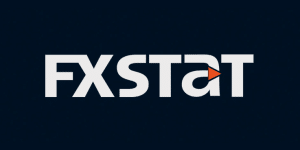
| PROS | CONS |
|---|---|
| Social interaction is well implemented | Very basic risk management features |
| Access to multiple trading instruments | No mobile app support |
| Lots of statistical data |
CM Trading CopyKat
CM Trading launched CopyKat with a specific focus on customer security. They are based in Johannesburg and regulated by the Financial Sector Conduct Authority (FSCA) which has very strict standards.
Customer funds are protected by layers of insurance and compensation schemes in the unlikely event that the company folds.
They have received many prestigious awards during their tenure and are a well-trusted brand in the world of Forex.
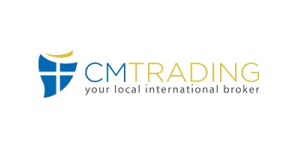
| PROS | CONS |
|---|---|
| Four different account types to choose from | No Crypto trading option |
| Highly regarded and secure system | Smaller user-base than more established platforms |
| ‘Guardian Angel’ feature warns users of fluctuations in the market |
cMirror
cMirror is one of the newer platforms on this list. It was launched in 2014 and has received mostly positive reviews since.
It boasts a remarkably fast turnaround time on trades, which minimizes slippage. There is lots of data on each signal provider, so you can choose the best option to copy.
The platform is a little confusing at first glance, there is a lot of information to digest. But once you wrap your head around it, all the information on screen proves useful.

| PROS | CONS |
|---|---|
| Fully functional demo account | The social element is somewhat lacking. |
| Fast trade executions |
SIRIX
SIRIX is an all-in-one platform operated by Leverate supporting over 100 brokers worldwide. It’s social trading platform is entirely web-based.
Built-in HTML 5, it is accessible on almost any browser. It’s not necessary, but there are also apps for both Android and iOS.
Their platform has an integrated news and economic calendar feature which shows a host of important events which may affect market conditions.
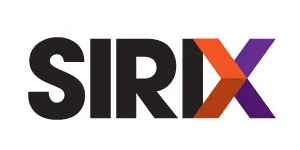
| PROS | CONS |
|---|---|
| Supported by over 180 brokers | The cluttered interface on the web browser |
| Large active community | A limited number of trading instruments |
PrimeXBT
PrimeXBT offers a variety of trading instruments, but it focuses primarily on trading Cryptocurrencies. It offers five crypto options: Bitcoin, Ripple, EOS, Ethereum, and Litecoin.
Besides their crypto options, users can access indices, Forex, and commodities. They offer leverage of between 100:1 and 1000:1, depending on the trade type.
Their social trading feature is called ‘Covesting,' but it is essentially the same as all other social trading methods.
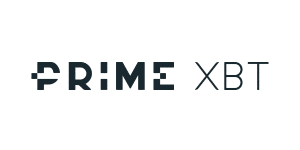
| PROS | CONS |
|---|---|
| Trading fee competitively low | All withdrawals and deposits are in Bitcoin |
| Great for traders looking to deal in Crypto | No demo account available |
| Protected with CloudFlare technology so the site is always up |
MetaQuotes MetaTrader
MetaQuotes are the same company behind the fraudulent MQL5. We would not recommend using any of their services.
MQL5
MQL5.com is a broker we don't recommend. Their proprietary technology owned by Metaquotes launched in 2010. Despite whatever they might say on their website, reviews for this platform are overwhelmingly negative.
Users should be warned that it is most likely a scam, or at least uses shady business practices. Many users report that their indicators are disabled during a trade, meaning that traders outright lose any money invested.
Users report that withdrawing funds from the platform is near impossible. The platform recently disabled its only remaining method of withdrawal, PayPal. Do not use this service.
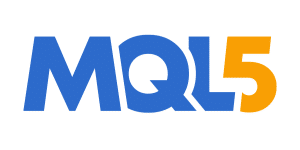
| PROS | CONS |
|---|---|
| / | It’s likely an outright scam |
| / | Profitable traders are completely misreported |
| / | There’s no reliable way to withdraw funds |
MyDigiTrade
MyDigiTrade is owned by Larmont Capital Ltd. and is registered in the British Virgin Islands. This should be a red flag for potential traders as it’s a well known tax-haven for shady companies.
Their FAQ and customer support border on non-existent. Opening an account requires a $25 deposit.
Because a trusted governing body does not regulate it, we would not recommend this platform.
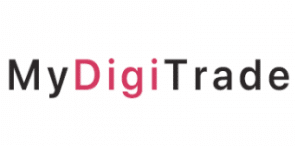
| PROS | CONS |
|---|---|
| No global presence outside of BVI | |
| Little to no transparency | |
Share4you
Share4you is operated by Forex4you. Because this company is not registered, it is essentially trading illegally.
Many users report being scammed out of money that is impossible to get back. Do not use this service.
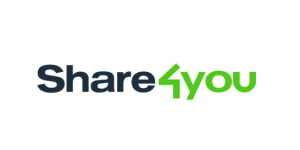
| PROS | CONS |
|---|---|
| Not a registered trader that follows any regulatory laws | |
What is Social Trading?
How Does it Work?
Social trading is a function of many new trading platforms. It allows users to copy trades done by successful traders on their social trading platform. The goal of social trading is to minimize risk while following trading set by other trusted traders.
Social trading began in the early 2000s with traders on Forex markets. Since then, it has expanded to commodity trading, shares, and indices.
These platforms allow users to view other traders' portfolios and copy their investments. Important features to note when looking are the fees, the number of active users, and the regulations involved.
The goal of social trading is to break down the barriers that keep people from participating in trading. Users with little or no experience can invest by copying from other traders who have more experience.
Some platforms are designed with social trading in mind, allowing users to subscribe to other traders’ channels. If you use a platform that does not facilitate this, you can always incorporate individual elements of social trading in your portfolio.
Social trading is useful for reducing the amount of research and preparation you need to do before making a trade, but the trader you’re copying may not have done their research either.
Social Trading vs. Copy Trading
Social trading and copy trading are sometimes confused, but they are distinct. Social trading is about evaluating trends based on other traders on the platform, either copying them directly or going in the opposite direction.
Copy trading is a part of social trading, but it is more limited. Copy-trading another trader means you will automatically make the same trades they do. This is useful if you find a generally profitable trader, but you have less control than general social trading.
How Do I Start Social Trading?
To start social trading, all you need to do is join a platform that supports it and find traders that perform well.
It would be best if you did plenty of research about the risks involved. Many traders who use social trading think it eliminates the risk, but that’s not entirely true. If you copy traders, you take on all the risks they do.
Is Social or Copy Trading Illegal?
Social and copy trading is completely legal. All you are doing is looking at the trades other users are making and copying the ones you think are likely to work.
Before the widespread popularity of social trading, this was still possible. As brokers introduced casual and individual traders to the market, they built features that encouraged users to use this method to trade.
Can You Make Money Social Trading?
As long as the trades you copy are profitable, you will make money. You can either copy the entire trade or only a portion of it. So you won’t make the exact dollar amount as the trader you are mimicking.
Traders are often rewarded for sharing their strategies financially or for popularity. Many platforms have gamified the experience by setting up leaderboards for the most successful followed traders.
Beware, just because you are copying a trader who has been successful in the past does not mean every trade they make will make money.
U.S. Restrictions
Depending on where the Social Trading Platform is listed, it will be governed by different regulatory bodies. If the platform is in Europe, it will be overseen by the Cyprus Securities and Exchange Commission (CySEC). If the company is listed in the U.S., it is governed by the SEC.
These regulatory bodies control various aspects of trading, social or otherwise. They enforce maximum leveraging laws ensuring that traders do not borrow too much capital from their brokers.
Regulators also protect against money laundering and require reports from brokers that increase transparency. You should always ensure that your broker follows regulation guidelines to protect yourself and your money.
Pros and Cons of Social Trading
Pros
- Little to no experience is needed to start.
- Follow the strategies of the best traders on your platform and earn the same profits they do.
- Allow auto trading.
- Trades can be done while you sleep. No missing out.
- Many platforms allow you to start and stop copy trading easily.
Cons
- Even the most profitable traders lose money from time to time.
- Copied trades may not always be profitable.
- There is often a higher commission on copied trades than on others.
- You will always be slightly behind the trend if you copy other traders.
How to Pick a Social Online Trading Platform
Fees (Trading and Non-Trading Fees)
These do not operate for free. So they’re going to take some cut from your trades.
Platforms such as eToro and Darwinex charge very little for the commission, but they take a proportional cut of each trade. Others take less of a cut, but they charge monthly subscription fees.
You should also be aware of inactivity fees. Since most of these platforms make money from active traders, they penalize users who do not trade frequently. These can vary from relatively small amounts to much more.
Number of Users
Social trading relies on having a large user base. More active traders on a platform mean there are more strategies to copy from.
Some platforms have millions of active traders, such as eToro. This is useful for exploring various options and strategies, but too many traders can make it difficult to pick out the best ones.
Platforms with fewer traders will give you fewer options, but it might be easier to sift through and find the best ones.
Minimum Deposits
Most trading platforms require potential traders to open an account with a minimum balance. It changes depending on the platform and is always subject to change.
If you’re looking to start trading, you need to find a platform where the deposit amount is within your means.
It would be best if you never went with a platform where the minimum deposit is more than the money you would be willing to lose.
Platforms like Naga Trader do not have a minimum amount. This is useful for novice traders, but you will still need to invest initial capital in starting trading. More expensive options will only be available to those who can afford them.
Research
Starting any trading can be a daunting task. While copy trading is easier than other forms, there is still a lot of research to be done before you start.
Reading through this article is only the first step, but it’s an important one. If there are any terms you don’t understand, look them up. You must understand every aspect of online trading before you put your money on the line.
There are many useful resources online to help you out if you’re a beginner, but they’re not all useful. Read through reviews on platforms like Trustpilot.com to find out what other users’ experience on any particular platform was.
Before making a trade or deciding to copy a signal provider, make sure you do thorough research on them. Is the market a volatile one or does it show slow but incremental growth? How profitable is a signal provider on average?
Being able to answer these and other questions will give you the best chance of making a profitable decision. Make sure that the platform you choose gives you access to this kind of analytical data. If it’s obscured or otherwise unavailable, you should probably find another platform.
Education
Many Social Trading Platforms provide lots of educational resources to their users.
If you’re a long-time trader, this information will be superfluous to your needs. But if you’re starting, you need to ensure that the platform you choose has some way of educating you about the basics.
Markets are made up of a complex network of interconnected systems. You’re never going to be able to understand each one of them, but you can learn how to read spreads and understand market sentiments.
You don’t need a master’s degree to start trading. That’s the beauty of copy trading. But if you’re going to risk your money, you need to make sure you’ve done your due diligence to give you the best chance of success.
Trading Tools
Trading tools are a must for anyone looking to make a significant earning on Forex or any other markets. Quite simply, they are utilities that have been built to give traders some sort of insight into markets.
Copy trading itself is a trading tool that these platforms provide, but it doesn’t stop there.
Many platforms give users access to financial calendars and newsfeeds that better equip them to understand the market. Most platforms also provide real-time charting software to illustrate the performance of stocks visually.
Other than that, there are a plethora of tools built into various platforms. Some may prove useful to you, others not. Be careful to examine what tools each platform has before committing to one.
There are also ancillary tools available outside of any of these platforms such as forex volatility calculators and currency correlation matrices. Depending on what you’re looking to trade, these may not be useful. But they could also prove to be a lifesaver.
Mobile Trading App
Everything has an app nowadays. Social trading should be no different.
Although not every platform has its own mobile app, most do. This is useful because you don’t always want to be shackled to your desktop waiting for the ideal time to initiate a trade.
If a platform has its own mobile app it gives you the ability to make a trade wherever you are. If you’re trading something highly volatile such as Forex or Crypto this is considered a must. Being able to make trades fast is going to give you an edge over other traders who can’t.
Account Types
Social Trading Platforms allow a variety of different account types. It’s important to make sure the platform you choose has an account type that’s compatible with your capital.
Account types vary depending on the platform, but they can be broken down into three general categories.
Micro accounts are usually limited to under $100. This limits the kind of trading you can do to mostly micro and nano lots. It’s a good place to start since you can’t lose too much money, but you will also not be able to make large returns.
Standard accounts go by many different names depending on the broker. These accounts begin anywhere between $100-$500 deposits. The risk is higher as you are starting with more capital to potentially lose, but you also could get higher returns.
VIP accounts are reserved for those with large sums of capital. They usually start at around $10,000 and go well into the millions. These accounts are typically ECN accounts so that they can trade directly.
Even if you have the capital to start with, we recommend starting with a micro or standard account.
Leverage and Margin
This is perhaps one of the most controversial aspects of any trading platform. Depending on where you live, regulations may limit the maximum amount of leverage you can use on trades.
Simply put, leverage is the ability to put up only a portion of the initial capital to control a position in Forex or other trades. Margin is the capital amount that the trader has to put up to secure that leverage.
If your broker offers you leverage of 100:1, for every unit of currency you put up as margin, your broker will leverage with 100 units of their currency.
For example, if you’re trying to secure a $100,000 position but you only have $5000 in your account, you can use leverage to secure your position. You would put down a $1000 margin which your broker would leverage with the remaining $99,000. (1000 X 100 = 100,000)
This is a woefully lacking explanation. Anyone thinking of trading using leverage should know exactly what they’re getting into before they start.
Users should be wary of any platform which offers leverage over 100:1. Anything over 50:1 is not allowed in the US.
It may seem like a good idea, trading on leveraged capital could make huge returns, but it could also put you in a massive financial hole. If you lose on the trade, you could end up losing more than you put up.
Base Currencies
The base currency is the first currency quoted in a currency pair. In Forex markets, if you are trading Australian Dollars for Euro (AUD/EUR). In this pair, the Australian dollar would be the base currency.
Base currencies change depending on where you’re trading from. Most of the time, it will be your native currency. If you’re trading currency outside your country, the base currency will be whatever your broker decides.
Assets
An asset is something you hold that has some financial value. In trading, you will not always be trading assets.
Depending on what your chosen platform allows, you may trade CFDs. As a rule of thumb, assets are less volatile with lower returns.
Regulation
Depending on where your chosen platform is listed, it will be subject to different levels of regulation. You must understand what those regulations mean to you.
Different regulatory zones may have rules determining maximum leverage amounts. In the US, leverage maximums are limited to 50:1. In the UK, EU, and Australia they can go as high as 100:1. Elsewhere, leverage maximums are not set.
Regulations will also determine what you’re allowed to trade and whether your funds are kept in segregated accounts.
Security
Since all of these platforms are hosted online, it’s important to consider the level of cybersecurity measures the platforms take.
All the platforms listed in this article have a proven track record regarding online security. But there are many other platforms out there. If you’re considering one of those, there are a few key features to look for.
Firstly, make sure they encrypt all their data. Unencrypted data makes your account a soft target for hackers who could easily steal your data, log into your account, and clean you out.
It’s also important to practice good hygiene while trading. Change your password often and ensure your antivirus is turned on and up-to-date. You could also consider using a VPN to further protect your data online.
Trading Platform
Most platforms use third-party platforms to complete their transactions. You will link your social trading account with a social trading account.
Most social trading brokers use MetaTrader 4 or 5 (MT4 or MT5). They will link with the trading platform through backend programs to complete your transactions.
This is normal practice with no cause for alarm, but you need to know which platform your social trades are connected to. Some trading platforms allow traders to link to more than one platform. Others use their platform.
Each of these options has its benefits and drawbacks. A system that uses its platform will complete trades quickly and reduce slippage, but it may be limited in the number of instruments you can trade.
Linking to one or multiple social trading platforms will give you access to many options, but high traffic could cause trade execution delays.
Conclusion
To recap, the best social trading platform is eToro, followed by AvaTrade. eToro is the best in class for social copy trading, while AvaTrade is the best social trading app.
